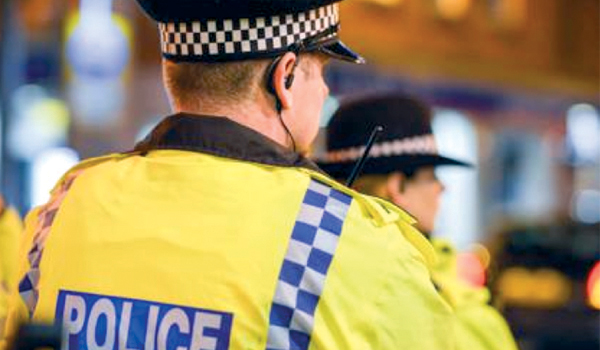Police ‘ill-equipped’ to tackle increasing complexity of drug-related issues
Police forces across the UK are “ill-equipped to manage the growing complexity of drug-related issues”, according to a new report from the Centre for Social Justice (CSJ).
It says the UK is facing a drug addiction crisis of “unprecedented proportions”, with drug poisoning deaths reaching a record 5,448 in 2023 – an 84 per cent increase over the past decade.
“Drug-related fatalities now far outstrip road accidents and knife crime deaths, highlighting the urgent need for a stronger response,” said the CSJ.
Law enforcement plays a critical role in reducing the supply of dangerous substances and deterring crime associated with drug use, says the CSJ.
“However, police forces across the UK report feeling unsupported and ill-equipped to manage the growing complexity of drug-related issues,” it adds.
“Two thirds (66 per cent) of police officers think cannabis is, to all intents and purposes, fully or partially decriminalised in practice, showing ambiguity and inconsistency in how cannabis laws are interpreted and enforced on the ground.”
CSJ polling found nearly three quarters (74 per cent) of police think that the current drug possession policies and strategies in the communities they serve are ineffective. Yet, 77 per cent say drug-related crime and disorder are a significant part of the overall workload and resource allocation of their team.
The report calls for enhanced training to ensure officers can respond appropriately to cases involving addiction, alongside more robust partnerships between law enforcement and public health agencies.
“Disrupting organised crime groups remains essential, but a complementary focus on diversion schemes and interventions for low-level offenders is needed to break the cycle of addiction and crime,” it adds.
“The role of law enforcement should be to leverage interactions with drug users to support individuals in their recovery and deter potential users from embarking on the path to addiction.
“Police have the opportunity to act as frontline responders, connecting individuals to the treatment they need, such as through the Out-of-Court Disposal (OOCD) framework currently under review.
“If utilised properly, OOCDs could channel individuals from the criminal justice system into treatment, addressing both addiction and associated criminal behaviour.
“In addition, police should be equipped with naloxone and prioritise treatment referrals following overdoses.”
The report found drug use was “widespread”, with 9.5 per cent of working-age adults (3.1 million people) reporting use in the past year, although the CSJ says this is likely an underestimate.
Alarmingly, more 13,800 babies have been born with neonatal withdrawal symptoms since 2012/13, underscoring the “intergenerational impacts of addiction”, it adds.
“The drug market is becoming increasingly dangerous, with fatalities linked to potent novel opiates soaring 17-fold between 2021 and 2023,” the report says.
“The emergence of xylazine, a deadly animal tranquiliser, on UK streets in 2022 has compounded the risks. Despite this, funding for addiction services has been slashed by 60 per cent since 2012, leaving vast gaps in treatment availability.
“Entire regions, like the North East – home to the UK’s highest drug death rate – are rehabilitation deserts, with only three residential facilities serving the population.”
To address this crisis, the report, Still Ambitious for Recovery, calls for urgent investment in treatment and recovery services, including long-term, ring-fenced funding to rebuild capacity and support effective planning.
It says “targeted initiatives” are needed to better support vulnerable groups, such as families, women, and ethnic minority communities.
The report also advocates for enhanced monitoring systems, including a national non-fatal overdose tracking programme and expanded wastewater testing, to provide more comprehensive data on the drug problem.
Additionally, it says harm reduction approaches, such as Scotland’s Safer Drug Consumption Facilities, must be “carefully evaluated to ensure they deliver measurable outcomes”, including increased recovery rates and reduced crime.
The report also highlights the growing need for specialised clinics to address cannabis-induced psychosis, tailored to meet local needs.
The CSJ is urging the Government to resist the liberalisation of drug laws and instead prioritise evidence-based investments in prevention, treatment and recovery.
CSJ polling found that almost a quarter (24 per cent) of young people would consider taking cannabis if it was legalised, paving the way for up to 355,000 more people needing treatment for cannabis dependency.
“Law enforcement must be empowered to address the crisis effectively while working in tandem with public health and social care agencies,” says the CSJ.
“Without decisive action, the crisis will continue to devastate disadvantaged communities across the UK.”


